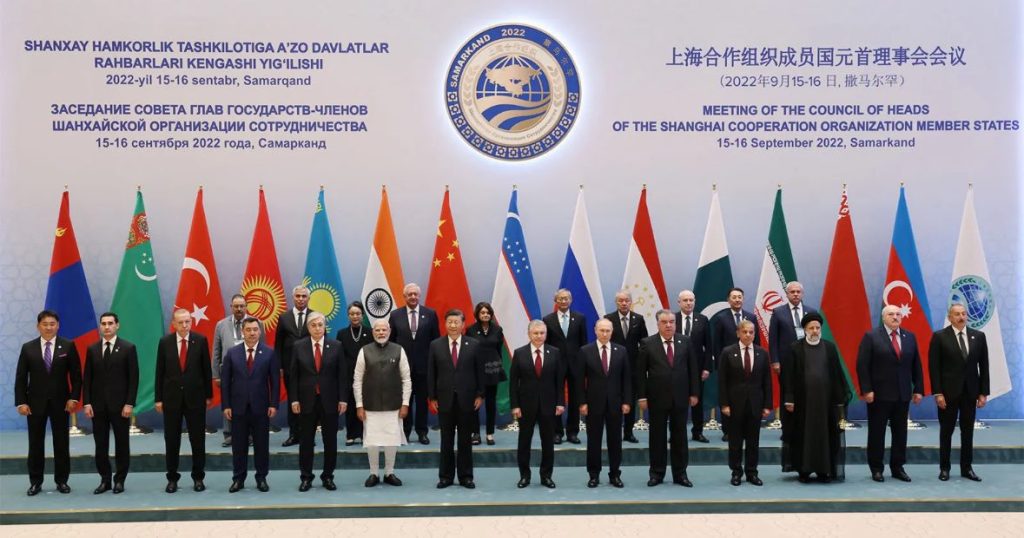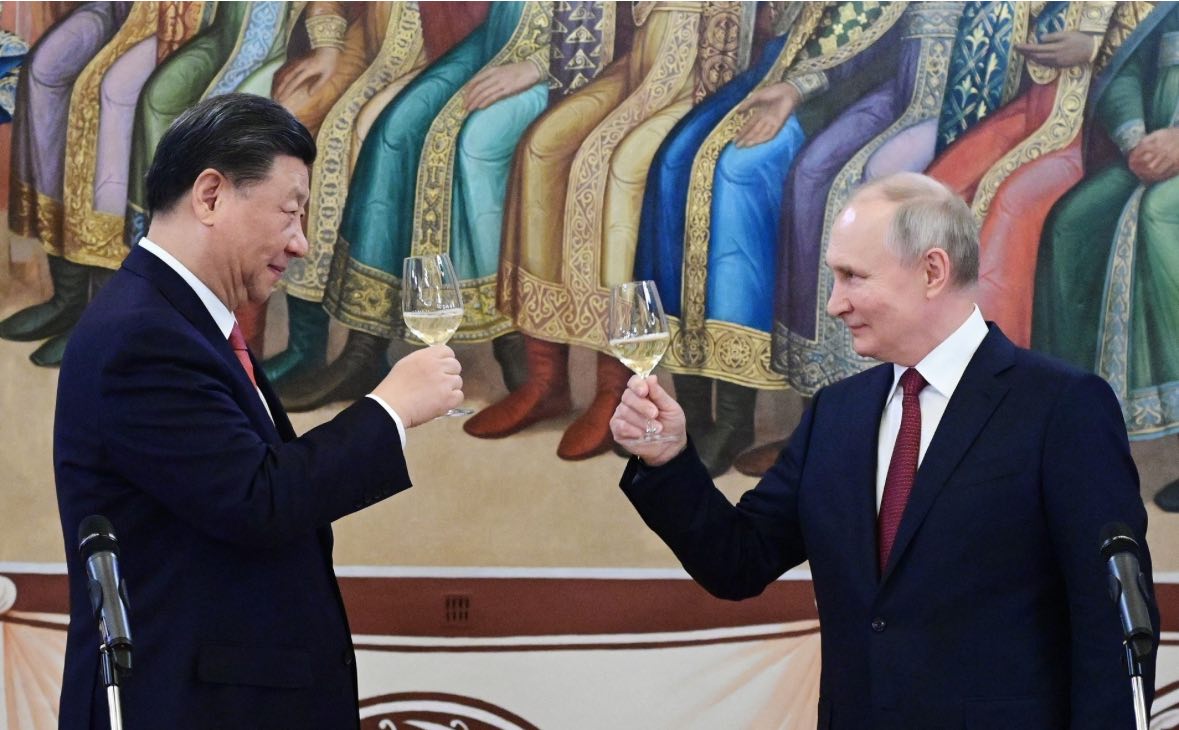Iran, Russia, China, and the Global Balance of Power: Tianjin is a Turning Point
Iran, Russia, China, and the Global Balance of Power: Tianjin is a Turning Point
According to IranGate News Agency, as international relations enter a new phase of power confrontation and a new Cold War between East and West is taking shape, the Shanghai Cooperation Organization summit in Tianjin Port, China, has become the focal point of these developments.
This two-day meeting, with the presence of over 20 leaders from Asia and Eurasia, not only reflects global geopolitical changes but also serves as a symbolic stage for showcasing closer ties between Beijing and Moscow and their efforts to present an alternative order against Western hegemony.
Masoud Pezeshkian, Iran’s newly elected president, has also participated in this summit in his first significant foreign trip, aiming to strengthen the look towards the East and expand regional cooperation.
Simultaneously, Narendra Modi’s return to China, increased diplomatic movements by Moscow and Beijing, and growing pressures from Washington on independent players have all turned this summit into one of the most important political events of the year in Asia. Continue reading IranGate’s analytical report on the political, diplomatic, and geopolitical dimensions of this summit.
Show of Eastern Unity in Tianjin Port: Shanghai Cooperation Organization and the Battle for Global Order
While the world is engaged in deep geopolitical transformations, the strategic port of Tianjin in China has become a symbolic stage for demonstrating the unity of Eastern powers and a new challenge to the Western-led order.
The Shanghai Cooperation Organization summit on August 31 and September 1 hosts more than twenty political leaders from Asia, Eurasia, and the Middle East, drawing attention once again to the roles of the two prominent powers of this bloc, Russia and China.
Vladimir Putin and Xi Jinping, the presidents of Russia and China, are not only seeking to strengthen their bilateral alliance at this summit but also aim to outline an alternative vision for the existing global order, which they view as dominated by Western unilateralism.
Pezeshkian in China: The Look to the East Put to the Test
Among the participants of this summit, the presence of Masoud Pezeshkian, Iran’s new president, has also attracted analysts’ attention. He arrived in China on the morning of August 31 to strengthen Tehran’s stance in support of multilateralism and opposition to the isolation imposed by the West in his first high-level international trip after assuming the presidency.
The Kremlin had previously announced that he would meet with Vladimir Putin on the sidelines of the summit to discuss Iran’s nuclear issue. This meeting could send important messages from Tehran and Moscow to the global community in light of renewed Western pressures, including the activation of the snapback mechanism against Iran.
On the eve of the trip, Pezeshkian described this summit as an opportunity for multilateralism against the Western bloc and emphasized the importance of bilateral talks with China and other member countries to develop economic, security, scientific, and cultural cooperation.
Shanghai Cooperation Organization: From Regional Security to Geopolitical Competition

The Shanghai Cooperation Organization (SCO), which was formed in 2001 to counter security threats and extremism in Central Asia, has today become a broad bloc with over 2.5 billion people and nearly 40% of the global gross domestic product. Its main members include China, Russia, India, Pakistan, Iran, Central Asian countries, and since last year, Belarus.
Despite this geographical and economic scope, Iran’s share of trade exchanges with the organization’s members remains small. This is while most member countries, contrary to political slogans, still maintain deep and strategic relations with the West.
From this perspective, for many members, membership in Shanghai and also BRICS does not mean a break from the West but rather a tool to increase diplomatic maneuverability and diversify foreign policy.
Multipolar Order or Platform of National Interests
Despite the symbolic unity, internal differences and conflicting interests pose a fundamental challenge to the organization’s cohesion. Temur Umarov, a researcher at the Carnegie Russia and Eurasia Center in Berlin, warns in an analysis that this summit has largely turned into a Putin-Xi show, and its real significance lies in behind-the-scenes meetings and bilateral negotiations, not in the formal structure of the summit itself.
On the other hand, the return of Narendra Modi, India’s Prime Minister, to China after seven years, amid border tensions and Washington’s pressures, has attracted much attention. This return could pave the way for direct talks between Delhi, Beijing, and Moscow, providing a path to reduce tensions and even revive trilateral interactions.
Meanwhile, Central Asian countries are also facing the challenge of balancing between Russia’s traditional influence and China’s growing economic power.
Luca Anceschi, a professor of Eurasian studies at the University of Glasgow, believes that China and Russia are both collaborators and competitors, but for now, cooperation, especially in Central Asia, outweighs competition. He also warns that in this region, a set of authoritarian values is being established, which could provide a foundation for consolidating the power of local regimes.
The Future of the Organization: Scattered Platform or Real Alternative
Although the Shanghai Cooperation Organization expanded last year with Belarus’s membership and Iran has solidified its permanent membership, no new membership is expected to be formalized at this year’s summit. However, membership requests from Azerbaijan and Armenia, despite increasing tensions between these two countries, remain on the table.
Younes Sharifli, a visiting researcher in the China and Global South project, also believes that this summit will be a key test for the organization.
In his view, if the organization cannot act as a cohesive entity in the face of increasing U.S. pressures on China, Russia, and India, it will remain a scattered platform guided more by the national interests of its members rather than shared principles of multilateralism.
The Eastern Test in Tianjin
The Tianjin summit is held at a historical juncture when geopolitical, economic, and even ideological fronts are being rearranged. For Beijing and Moscow, this summit is an opportunity to showcase unity, influence international order structures, and send a message of opposition to Western domination.
For Iran, it is a stage to escape isolation and solidify its position in the Eastern bloc, and for regional countries, it is an opportunity to pursue their interests by balancing between powers.
But the fundamental question remains: Can the Shanghai Cooperation Organization truly become a real alternative to Western-dominated global structures, or will it remain a platform for short-term political compromises and geopolitical considerations?

